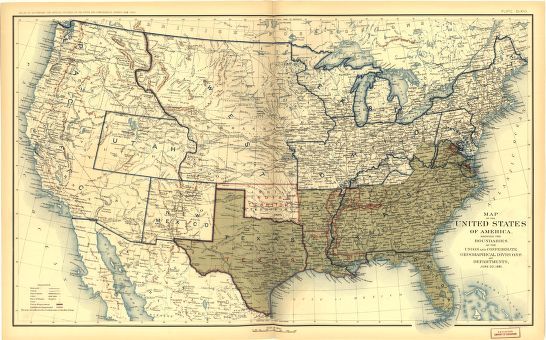 While many if not most white Baptists in the South believed that the enslavement of blacks was ordained by God and necessary for the southern, agricultural-based economy, the Baptist defense of a slave-dependent culture was not monolithic.
While many if not most white Baptists in the South believed that the enslavement of blacks was ordained by God and necessary for the southern, agricultural-based economy, the Baptist defense of a slave-dependent culture was not monolithic.
Slaveholders comprised up to about 20-25% of the white southern population, yet some 1% of slaveholders owned the vast majority of southern wealth and controlled southern politics. Some notable Baptists were slaveholders, including most of the men who were present at the founding meeting of the Southern Baptist Convention in Augusta, Georgia in 1845. Collectively, the men who cast votes to establish the SBC owned, on average, six times more slaves than the average slaveowner. Overall, however, relatively few Baptists in the South owned slaves.
Slaveholders stood to lose should the Confederate states fail to win victory over the Union. Defeat in the war would destroy their wealth and doom their way of life.
Non-slaveholding poor southern whites, by way of contrast, had no personal stake in the slaveholders’ rebellion against the United States. While living within a slaveholding culture and economy, their lot was one of daily struggle and powerlessness.
As such, southern slaveholders, despite their political power and wealth, realized the need to rally support from poor whites. They did so by arguing that since whites were inherently superior to blacks, even the poorest of whites in a slave society were morally, ethically and legally better than blacks and could conceivably rise to the rank of slaveholder, and therefore, wealth. Slaveholders also argued that Lincoln and the North’s campaign to liberate slaves, if successful, would take jobs away from poor whites. In addition, slaveholders charged that northern factory workers were wage-slaves and lived in worse conditions than those of southern slaves, much less white common folk.
Yet many poor southern whites remained unconvinced, even as many fought for the Confederacy. For poor whites, fighting for the Confederacy often meant fighting to protect family, fighting with friends, and hoping (by drawing soldier’s wages) to earn a better stake in life. Among Baptists, enthusiasm for the war varied greatly among individuals, congregations and associations. Some churches, for example, heeded the calls of denominational leaders to voice support for the Confederacy, while others refused to do so. Some associations openly supported the war effort, while others did not. And while many Baptist individuals fought for the South, many pastors (whether vocally supportive of the Confederacy or not) resisted calls to leave pulpits to serve as army chaplains or missionaries.
By the second half of the war, many common folk whites soured on the war and soldiers increasingly deserted from the army. The reasons for their disillusionment included anger at slaveholders refusing to serve in the army; the belief that the rich (slaveholders) were exploiting them; the growing wealth gap between the rich and the poor; a combination of carnage on the battlefield and destitution on the home front; and letters from wives on the home front pleading for their husbands to return home, among others. These socio-economic dynamics and family pressures played out among poor Baptists just as they did for other poor southerners.
———————————————————————–
More Information:
For a recent general analysis of the reasons some non-slaveholder southern whites fought for the Confederacy, see Kenneth Noe, Reluctant Rebels: The Confederates Who Joined the Army After 1861 (University of North Carolina Press, 2010)

